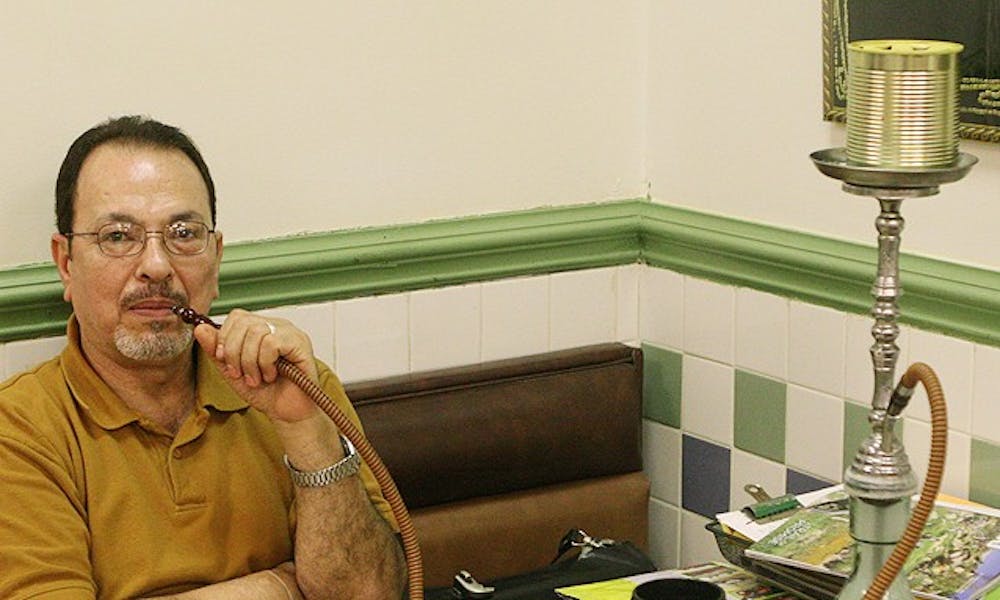The scent of chocolate-mint smoke hovers over the booth in the far right corner of International Delights as Gehad Lobbad, the owner of the restaurant, casually lights up his hookah apparatus and inserts his favorite flavor of tobacco.
His eyes progressively droop each time he inhales, and despite the fact that food is cooking and customers are waiting in his Middle Eastern restaurant, a relaxed grin remains plastered on his face. What may not be evident based on Lobbad’s nonchalant attitude is that next month, the laws allowing Lobbad’s impromptu pastime will undergo a major change.
North Carolina will enforce a law Jan. 2 that prohibits smoking in certain public areas, including restaurants and bars that serve alcohol or food. For places like International Delights, the ban means businesses will have to decide between serving food and alcohol or providing hookah to their customers.
For some hookah bars, the implementation of this law will have a negative effect on business, owners said.
Adam Bliss, owner of Hookah Bliss, a hookah bar on Franklin Street in Chapel Hill, said the new law might put him out of business.
“If we stop selling beer, there goes a good part of my income,” Bliss said. “If we fail at [selling only hookah], there is no way we can stay open. I’ll probably lose everything.”
Bliss added that he thinks the law was the result of numerous social injustices, noting the law’s exemptions for businesses such as cigar bars, country clubs, non-profit private clubs and tobacco retailers.
“Places that rich, older, affluent people go to are exempt,” he said. “[The state] protected all the places our legislators like to smoke in while telling the average citizens that we’re not allowed to smoke where we like to smoke. It borders ridiculous over to racist, when you think of who owns hookah bars, they are generally Middle Easterners.”
For hookah bar owners closer to campus, the laws will have a less serious affect. Lobbad said most of his revenue does not come from hookah sales and because he is the only one who prepares hookah, it will not affect employee income.
“Only once or twice a day do people come into smoke,” Lobbad said. “We don’t depend on hookah.”
Tommy, the owner of 1013 West Main who declined to disclose his last name, said he would come up with alternative ways to sell the product.
“We only do maybe about two or three every day,” he said. “We’ll just do it outside on the patio.”
Junior Robby Kelley said that for most students, the law would have little effect on their own hookah experiences, noting that students rarely go off campus to smoke.
“I don’t think it will be that bad,” Kelley said. “I hadn’t even heard about [the ban] until now. Most people who smoke hookah usually have their own.”
Get The Chronicle straight to your inbox
Signup for our weekly newsletter. Cancel at any time.

